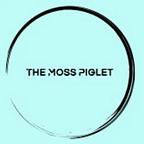Conversations are taken for granted
Every day you’re talking to people. In this fast paced life, we tend to forgo good things to chase those that are better or best.
Shouldn’t we take some time off our busy schedules to slow down (not stop), admire the beauty of the present and past?
Recently, I’ve watched the film, Norwegian Wood, which was adapted from Haruki Murakami’s novel by the same name. In both the novel and film, there was this bittersweet quote.
The novel was written as a flashback of the protagonist, where he was reminded about his university days. This made me ponder about my own past, the friends I’ve made over the years.
The reason why the quote is so bittersweet is because it reminded me about the friends that I know, who became friends I once knew.
Everyone has made and lost friends in life. Some met with tragic ends, some just faded away as we move on in life. Of course, I do not expect to keep in touch with everyone I know, which is why seeing this quote give me the feels. The people that I’ve met along the way have, in one way or another, moulded me into the person I am now.
After being in the workforce for about 8 years and experienced some sort of burnout during the pandemic, I decided that I should spend more time on more important stuff other than putting all my energy into work.
Since then I had more profound, deeply human, meaningful conversations with friends that I had in the previous 8 or even 18 years. If you think a conversation with someone may be the last, you explore it with a force that redefines what a normal trivial conversation means.
What is a human life well-spent?
I recently finished When Breath Becomes Air, by Paul Kalanithi.
It was written by a neurosurgeon nearing the middle of his life and the peak of his profession … who received news that he developed an aggressive form of lung cancer and the odds of survival were not good.
It was a desperate sentence — a specter that haunts many in society today. Yet what this man was able to create in the wake of that diagnosis was simply a work of beauty.
I love how this book is written, how he wrestled so openly, humbly, and courageously with life’s greatest questions and fears.
Sadly, Paul did not finish his book. His wife added a heartfelt epilogue at the end of the book — appropriate since Paul’s did not manage to tie a bow on this masterpiece.
Paul’s decision not to avert his eyes from death epitomizes a fortitude we don’t celebrate enough in our death-avoidant culture. His strength was defined by ambition and effort, but also by softness, the opposite of bitterness. He spent much of his life wrestling with the question of how to live a meaningful life, and his book explores that essential territory. “Always the seer is a sayer,” Emerson wrote. “Somehow his dream is told; somehow he publishes it with solemn joy.” Writing this book was a chance for this courageous seer to be a sayer, to teach us to face death with integrity.
I love how this quote summarizes what Paul is trying to say in his book. He is trying to grapple with the meaning of life when he knows that his is about to end.
Carpe Diem
Every day you’re talking to people. You never know if any one of those conversations will be the last with that person.
Pretend it is.
Conversations will start to look different. You’ll communicate with a level of emotion and vulnerability that’ll make you appear different compared to those stuck in the Matrix.
Too many of you act like you live twice. Anthony Pompliano says you start living the day you understand you’re going to die. It could be at any moment.
Now that’s a hard pill to swallow that’ll change your life.
